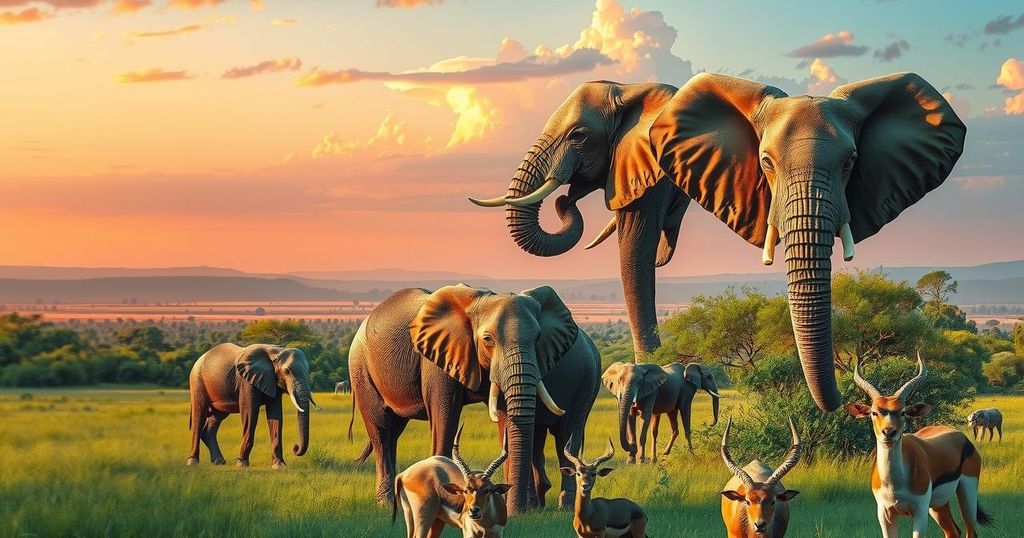Botswana has earned $4 million from hunting licenses since lifting a ban in 2019, despite facing increasing opposition from European nations against wildlife trophy imports. The minister emphasized the economic benefits for local communities derived from sustainable hunting practices. However, local advocates express concerns about the overall benefits and impact on communities if such hunting practices face further restrictions.
Botswana has generated $4 million from hunting licenses, marking the highest revenue since the ban on hunting was lifted in 2019. The hunting season, which concluded in November, faced opposition from several European nations advocating for a prohibition on importing African wildlife trophies. Annually, Botswana issues around 400 elephant licenses, primarily sold to international hunters.
Wynter Mmolotsi, Minister of Environment and Tourism, reported to Parliament that substantial revenue is produced through the sale of elephant licenses, benefiting communities in wildlife-rich areas. He stated, “In order to manage the wildlife population, the country is implementing a combination of both consumptive and nonconsumptive utilization of our wildlife resources to derive optimum economic benefit, particularly for our communities.” For the 2024 hunting season, community quotas yielded 42,863,423 pulas, with an additional 15,633,950 pulas generated from special elephant quotas aimed at conservation and community projects.
In 2023, Botswana earned $2.7 million from hunting licenses. Despite this financial success, Mmolotsi emphasized that Western opposition is intensifying, notably from countries like Canada and Belgium that have enacted bans on wildlife trophy imports. He remarked on the challenge posed by animal rights groups against Botswana’s sustainable wildlife utilization policy, asserting that they aim to counter this opposition through increased engagement in Europe.
Siyoka Simasiku, a director with the conservation coalition, warned of the adverse impacts of the U.K.’s potential ban on community benefits, arguing that the U.K.’s influence could cause other nations to implement similar restrictions. He highlighted that the absence of foreign hunters would significantly harm local economies dependent on hunting licenses.
Conversely, Oaitse Nawa of the Elephant Protection Society advocates for the cessation of hunts, questioning the tangible benefits of hunting revenue for local populations. He stated, “They are giving us figures of the money that they made from hunting, but also let us look at the compensation that they give the people… There should be proper research in that regard.” This ongoing discussion is critical as Botswana, home to over 130,000 elephants, grapples with rising human-wildlife conflict and agricultural damages.
Botswana’s revenue from hunting licenses has reached $4 million, demonstrating the financial significance of such activities following the lifting of the hunting ban. However, the country faces mounting opposition, particularly from the U.K. and other nations opposing trophy imports, which could adversely impact local communities reliant on hunting revenues. The divergent views on the benefits of hunting highlight a complex relationship between conservation, community support, and international policies.
Original Source: www.voanews.com




